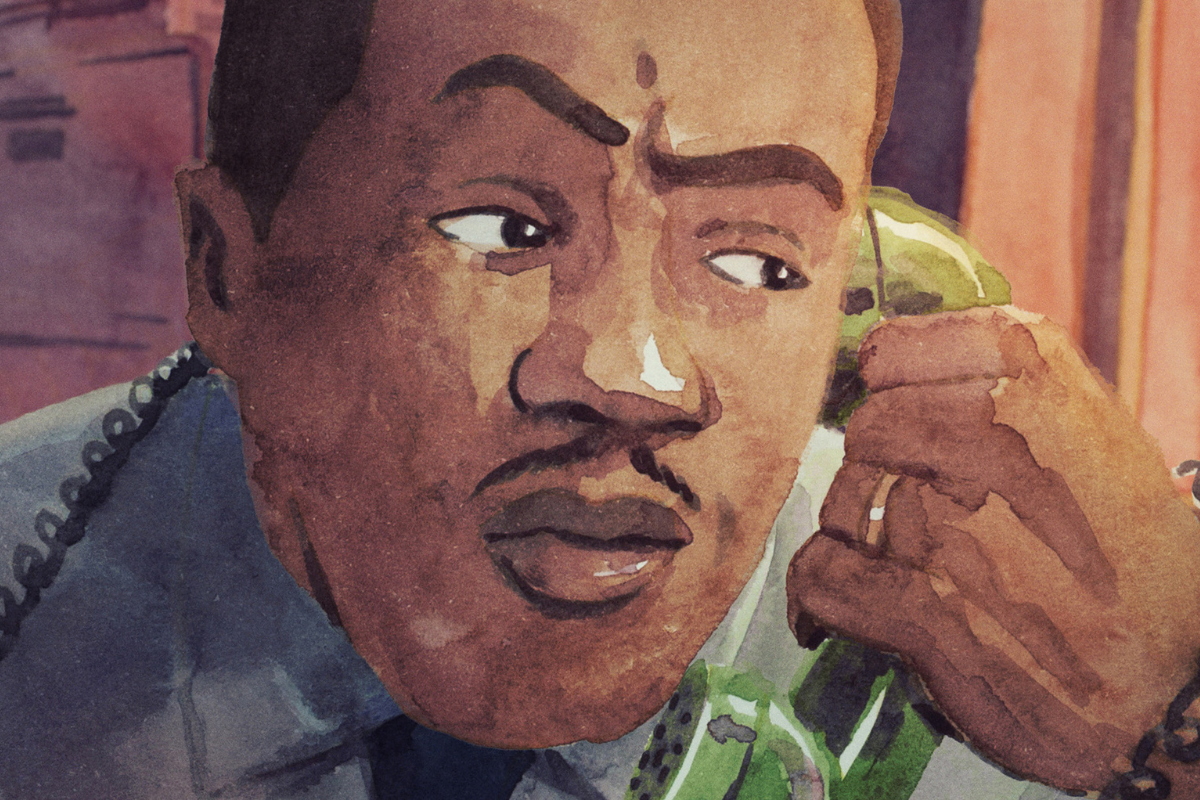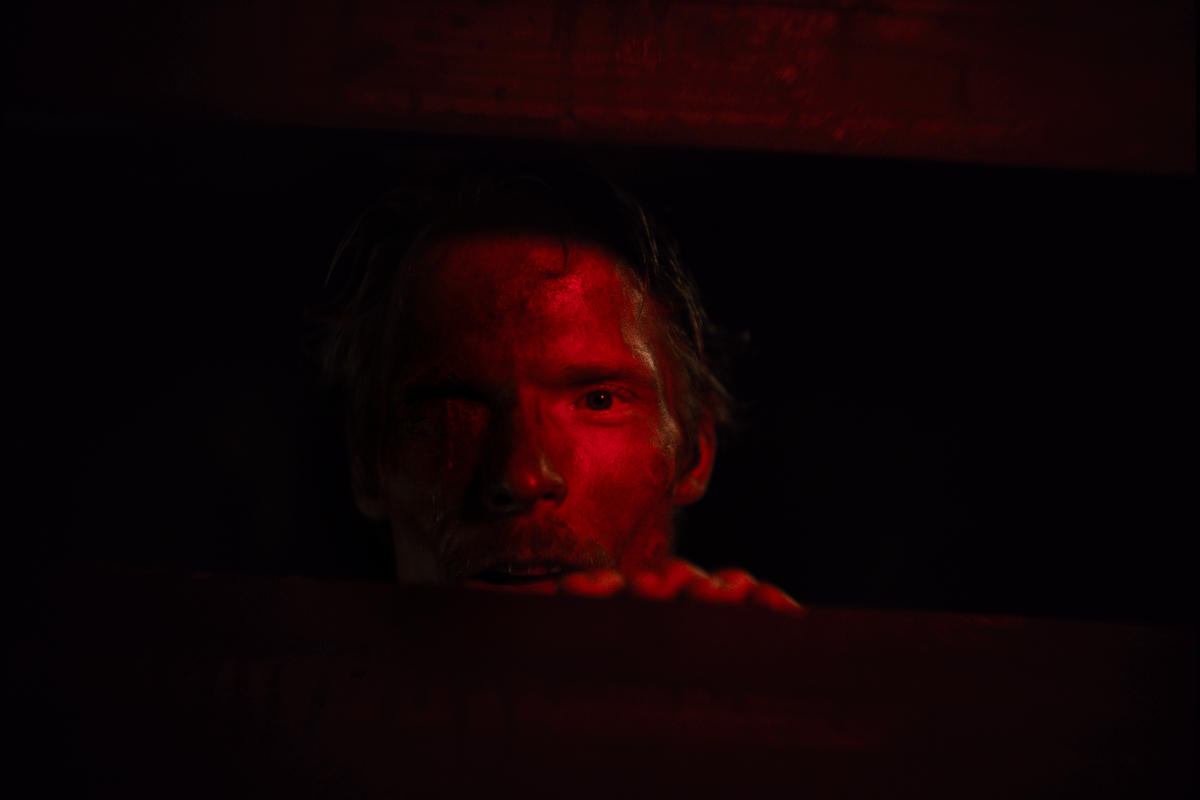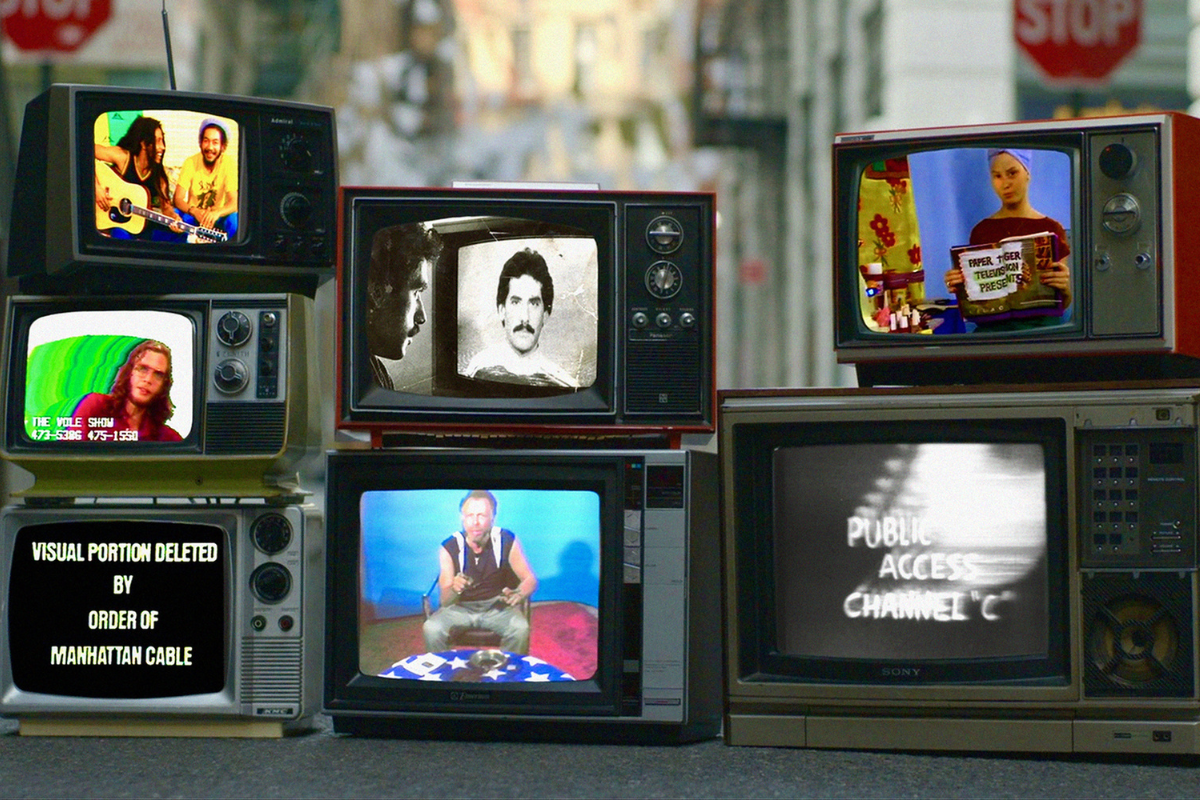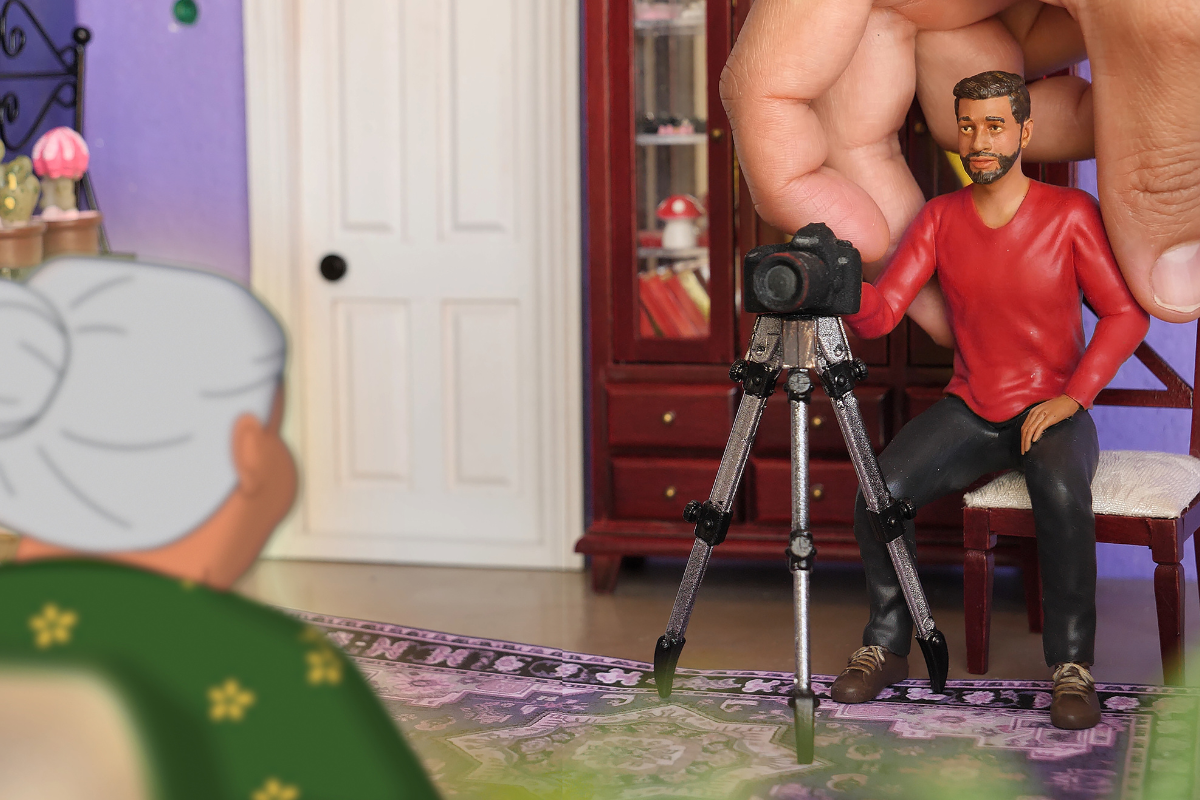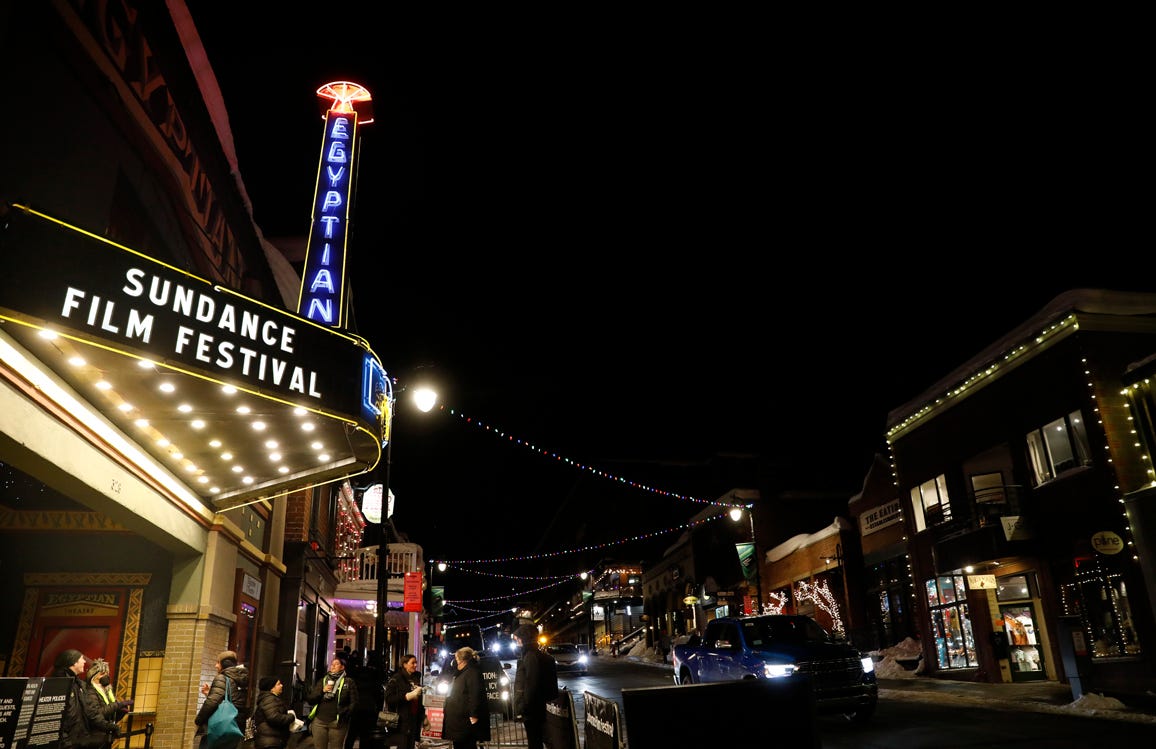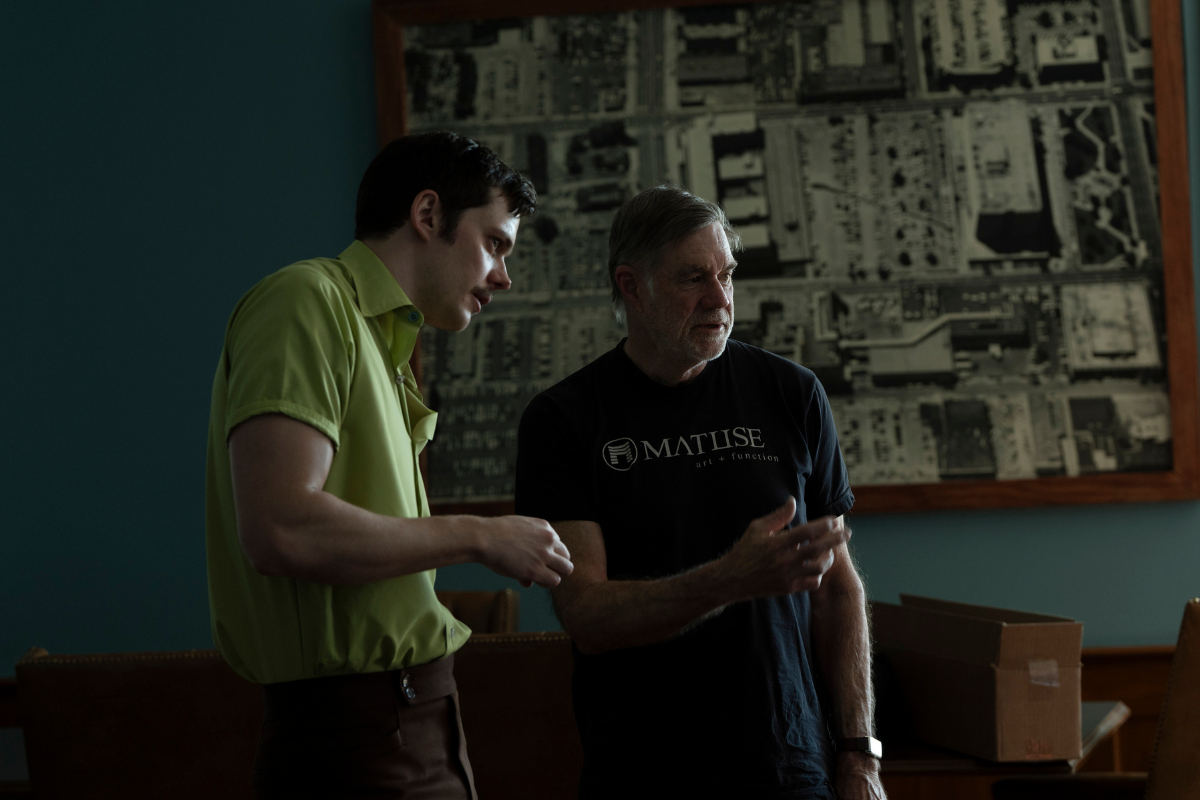Leaning into Character and Logic with ‘Watcher’ Screenwriter Zack Ford
‘Watcher’ screenwriter Zack Ford speaks with Script about the inspiration behind the story, collaborating with director Chloe Okuno and leaning into what scares you when writing a thriller.
On the heels of its Sundance Film Festival 2022 premiere, Watcher has been compared to the likes of Hitchcock thrillers from pacing to scares - which isn't a bad comparison at all, for a directorial feature debut by Chloe Okuno. The movie is a thrilling and unsettling glimpse of a woman being watched, mixed with the uneasiness and struggle that comes with speaking your truth and nobody believes you.
I had the great pleasure of speaking with Zack Ford, the scribe behind Watcher. Zack shares the inspiration behind the story, the importance of writing this script, his collaboration with Chloe, and how leaning into what scares you will make for a great thriller.
This interview has been edited for content and clarity.
Sadie Dean: Knowing that this was originally set in New York, where did the story idea come from?
Zack Ford: Yeah, it was originally set in New York. I wrote it while I was living in Manhattan, and I had just moved to Brooklyn. And just had the idea from that sense of dread and paranoia you can kind of get in New York, with everyone living on top of each other. And I did set it in New York, but also consciously wrote it to be easily rewritten to be in another place if it had to be. It wasn't dependent upon being in New York. So, when Chloe came on, and she tailored the movie to be shot in Bucharest, it worked really well. I kind of knew that it wouldn't shoot it in New York, just because I know how the industry works. I was guessing that it if ever got sold, it would probably go to Toronto first or someplace like Calgary. But Bucharest was perfect.
Sadie: Was that because of budgetary reasons, or because Chloe Okuno wanted to shoot there?
Zack: I don't know the specifics of it, but I would wager that it had to do with tax breaks, I would wager that it had to do with the pandemic. I don't know how many people are going in and out of Bucharest. I don't think Bucharest was necessarily a hot spot. I bet that it had something to do with the decision and the calculus of wondering whether the production was going to get shut down - and the shoot did originally get delayed for a year. I'm sure there's many factors, but I think it worked really great. If I had known about Bucharest more, I probably would have just set it there originally, I think it was such a perfect setting.
Sadie: The idea of being a woman and having this sensation of being watched and then trying to tell people that you are indeed being watched and nobody believes is scary. Were you inspired by a specific situation, or were you hearing from other friends about these kinds of instances while living in New York?
Zack: I'm constantly asking and listening to my friends who are women, and I believe them. You want to write a screenplay that people can relate to, but ironically I think it's profoundly sad that so many friends I have who are women do relate so deeply and directly to this story of a woman not being believed. It almost hues into that reality television dynamic of gossip and intrigue and romantic dissension and I think the conflict and the gaslighting and masculine arrogance is what really drives the screenplay.
Also, I'm always assessing how to get people hooked into a screenplay. Is it jump scares? Is it horror? In this case, it's a misogynistic dynamic that plays out too often in our society, and I hope to shine a light on that. I had a screening at my house and there were 15 people here and there was that dynamic as we watched, are you Team Maika, or are you Team Karl? Of course, the choice is obvious to anyone with a good head on their shoulders. But that reality TV gossip aspect, that's what sustains the tension here - the anger of what this woman has to deal with. I hope this movie makes people angry, and it should.
Sadie: What's your overall writing process like? Do you have a daily writing routine?
Zack: I'm still writing pretty heavily. Of course, now there's the pressure to write something new and I have. But Watcher was a big learning experience for me about what really makes the script work. And I have an instinct for what makes a script work and doesn't work now. I remember when I wrote the Watcher, I wrote it very quickly, that first draft. And it's because all those dynamics I mentioned are in play that the script really wrote itself. The dissension and the conflict between the two main characters, the conflict of a woman's intuition versus patriarchal power structures, and the expectations of what a genre film should be, it almost wrote itself. I really brought in the lessons from writing that movie into my writing process these days. I think that's how I've evolved as a writer, like, more and more and more, I hold myself back from going to Final Draft and writing fade in more and more and more, I wait and resist writing anything until I have my head around all the dynamics at play. And I only start writing when I've identified the conflicts, the dynamics, and then by default, the scenes start writing themselves in my head. So, writing Watcher and seeing how it was received I would say heightened my instincts of how to write but also when to start writing and when not to start writing, what to write and what not to write.
Sadie: Do you outline or jot down ideas on a notecard and let the idea ruminate?
Zack: I try to do start my outlines in a freeform way, especially when you're setting up ideas and expectations. It's such a delicate balance sometimes by outlining too rigidly, I find that maybe you lose some interesting juxtapositions that could be there. I try to think in thought bubbles or mind mapping, where once I have the dynamics and the ideas, I write them down very loosely, once I have points of conflict that those dynamics might engender, then I write those down. And I keep them almost like little Lego pieces that you can build but take apart and rebuild so that even though they're dependent on each other, they're not too dependent on each other. So, you're specific, but also have room to breathe. And I think that comes into play in Watcher where you know where it's going, but also, there are some moments where you might not be quite sure where it is going.
Sadie: Is the thriller genre what you’re going to stay writing in or are you hoping to expand and write in other genres?
Zack: I am definitely going to expand. After I've had some ups and downs in my career as you know, you know, I watched Scar 3D many years ago, become something that it shouldn't have been and I’m not proud of that film -- I was so young when I wrote it, I was only 22, and I let the producers take the material in a direction that it shouldn't have gone. With Watcher, I’m proud to have written something that is participatory in a larger conversation about how we treat women. Of course, also, as I was writing Watcher, it was really in my head that it had to be a success. It had to be commercial - and I’m really happy that I was able to help craft a good film that has something important to say. I think Watcher shows how important the horror genre can be. Also, I wanted to do something that was solid, before I got too experimental, and I think this success will help me branch out into different directions. But you know, every film is kind of dependent on the one before and the one after in your career. So, we'll see how much the people I work with next or work with again, what kind of risks they will want to take. I am now shopping a sports comedy about Ultimate Frisbee. Will producers want to say, 'A sports comedy about Ultimate Frisbee from the writer of the Watcher? Does that make sense?' So, everything has to make sense, step by step and day by day.
Sadie: What was the collaboration process like with director Chloe Okuno?
Zack: We had a few rewrites together. She pitched on the project, she really wanted to come on and she did a big presentation to lock it. And when they hired her as a director, we did a couple of rewrites together. I came to Los Angeles, and we worked on some stuff in the beginning of the script which came through. I think it was a great script for her as a first-time director, and I think Chloe will continue to be a big success. She was the right director for this project. When I wrote it, I left the script open to be interpreted in any city, but it's also like an auteur script that a director like Chloe was able to put her stamp on it. She was able to make parts of it her own. And she did a masterful job serving the material. That's what was really exciting for me to see when I watched it; everyone working on it, from Chloe to the cinematographer Benjamin Kirk Nielsen, to the editor Michael Block, everyone got it. With Scar 3D, no one had the same vision. No one knew what the other person was thinking, and the movie suffered. It wasn't anyone's particular fault. But everyone worked together. You could tell everyone was in love with the material and everyone had the same vision and purpose. And there was such harmony to it, and that's why it's a success, which is a testament to Chloe, of course.
Sadie: What inspired you to become a screenwriter?
Zack: My mom. In 1996 I was 14, and she had a script, it was a finalist in the Austin Heart of Film Festival, and I ended up going as a kid, with my mom, seeing what a screenplay was and realizing that that's where movies came from. Seeing my mom's finalist script read aloud by actors and I said, 'Holy cow, that's what I want to do.' I chose it from such a young age. I would write screenplays as a kid, I'd send them out. I got in the top 16% of the Nicholl when I was 16. I used to dream about selling a screenplay. And when I was in high school, I would dream about getting a call from the office, because I'd sold a script or something. I chose it from a very early age. I think my mom is a lot more proud of me for Watcher than for Scar 3D, and that makes me feel proud.
Sadie: That's such an awesome story. Any advice for writers who write in the thriller genre, what is something they should lean into or avoid?
Zack: I would lean into character and logic, and what scares you, and really think about what's important to you - like about how Watcher is about a real societal problem. I think there are two reasons why the Watcher sold; one is the supermarket scene, and one is the theater scene. And I remember writing those scenes so clearly, because they are specific, and you know the stakes and you know the character. And it's written very logically. If you write a screenplay where you go back to basics, and you write a screenplay with a clear beginning, middle and end, and you know where your characters are and how they're feeling and what they're going through, and you have something to say, you're going to have a great calling card script. That's not to say don't take risks and write things that are wildly far out. But as you're doing that, too, go back to the basics and the fundamentals. They never go stale.
Read more about Zack's screenwriting journey from his Script article How I Hijacked Hollywood or: How To Sell A Screenplay.


